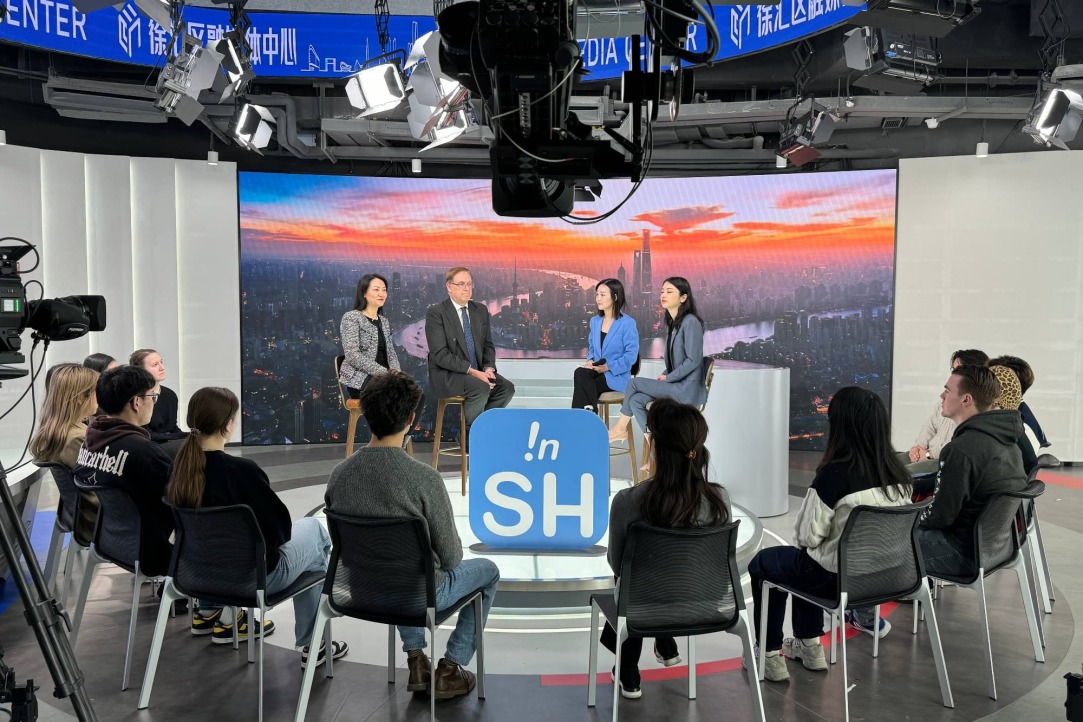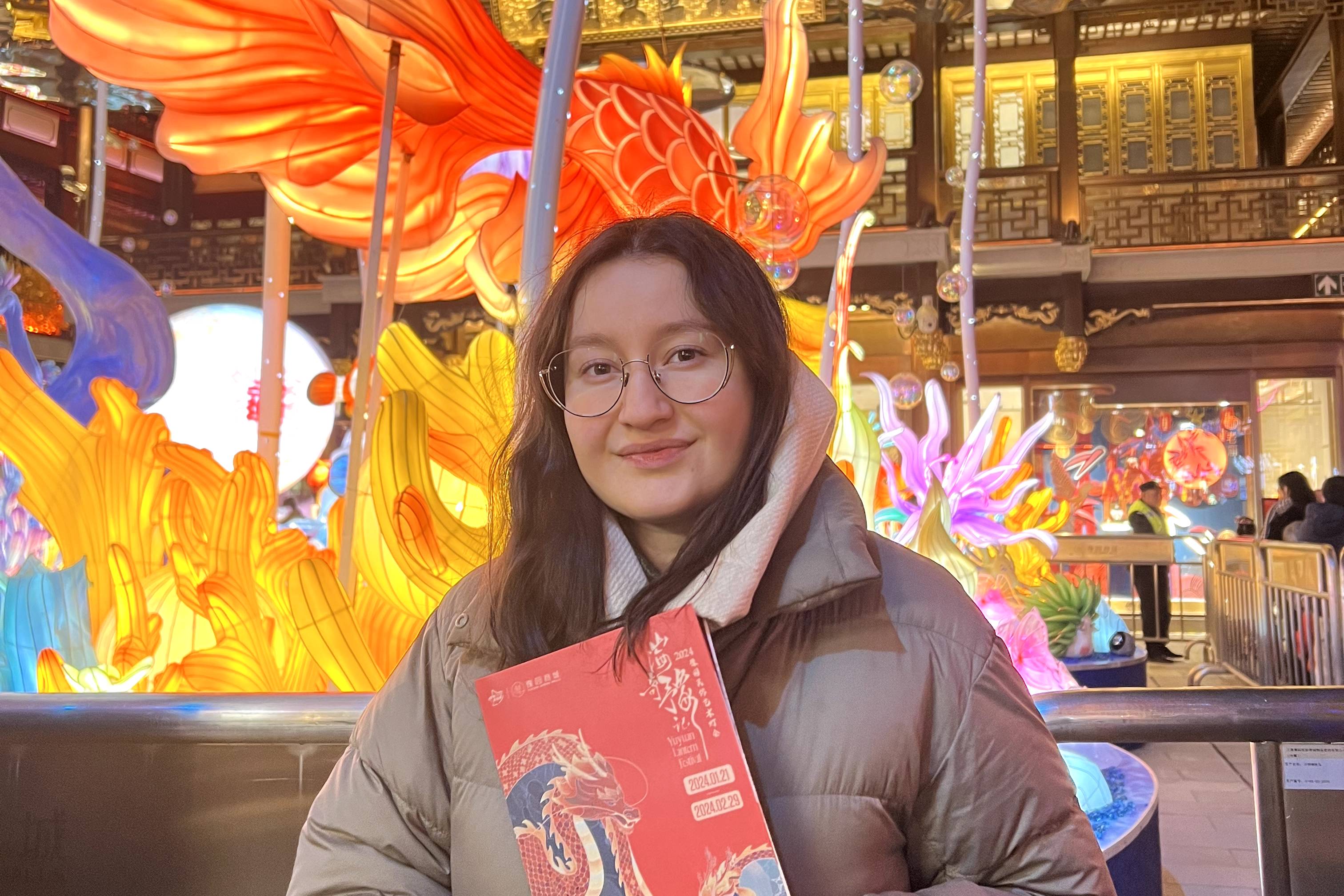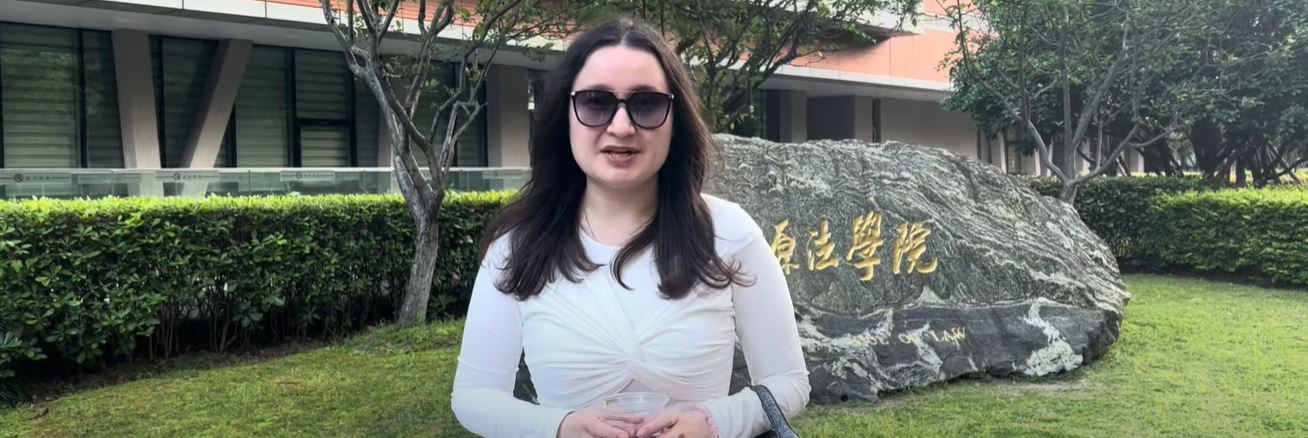“One of the Best Decisions in My Life Was Taking a Chance and Going to Shanghai”
HSE Student in a Chinese University

Marina Pavlenko, a second-year master’s student in Retail Management at the HSE Graduate School of Business, went to Shanghai on an academic mobility program to immerse herself in the atmosphere of one of the most dynamic cities in the world. She is currently studying at the Antai College of Economics and Management (ACEM), one of China’s top business schools.
According to Marina, the most challenging subject for her is Data Modeling, while her favorite is Financial Management. Most professors have professional experience in the U.S., and guest lecturers from leading consulting and IT companies like Google and Tesla often join the classes. This provides first-hand insights into the latest trends in business and technology.
"ACEM is one of the leading business schools not only in China but also globally. Participating in the exchange program or summer school at Antai is a unique opportunity for GSB students to dive into a completely different cultural and business environment while gaining top-quality knowledge. This kind of experience is extremely valuable for our students, as it helps them better understand global business changes and adapt to them more quickly in their future careers," says Ivan Prostakov, Deputy Director of HSE Graduate School of Business.

Ivan Prostakov
The HSE Graduate School of Business creates unique conditions for preparing students to compete successfully in the global job market. Through international cooperation and experience exchange, GSB graduates acquire the skills needed to thrive in major companies. One of the school’s key goals is to promote international mobility, which allows students to complete part of their HSE education at a partner university abroad. To facilitate this, the school has established its own International Office, making it easier for students to participate in academic mobility programs.
Shanghai is not only China’s economic center but also one of its largest commercial cities. Here, modern technologies are intertwined with traditional Chinese values, creating a unique blend. For Marina, this experience has been an opportunity not only to deepen her knowledge in management but also to get to know Chinese culture and traditions.
Combining theory with cutting-edge practice is a must. Temporary retail blends offline and online customer interaction, so many students create their own marketplace projects, including those involving export-import operations. The Retail Management program ranks among the top 10 master’s programs in e-commerce and digital marketing in Eastern Europe according to the international Eduniversal Best Masters ranking.

The infrastructure on campus and in the city is impressively well thought-out and convenient.
“Sometimes it feels like I’m a character in a TV show living in this atmosphere. We have cafés and restaurants, shops, delivery points, sports clubs, tennis and football courts. Food is inexpensive and delivered quickly. Also, China is a paradise for shopaholics — you can find high-quality clothes on marketplaces for around 100 to 700 rubles,” Marina shared.

The first two weeks for exchange students are introductory, with the opportunity to attend orientation lectures and adjust their study plan. This is also a great time to explore Chinese culture and the city itself. There’s even a little tradition: students present their national culture by inviting classmates to a national cuisine restaurant. It’s a fun way to connect and get to know each other better.
“Asia is a completely new world. Everything is different here — the culture, food, lifestyle (for example, Chinese people go to bed and wake up early), payment systems, food and taxi ordering, apps, habits. It’s so exciting to see the world from this completely new, Eastern perspective! One of the best decisions in my life was to take the risk and go to Shanghai without speaking Chinese,” Marina said.
Marina Pavlenko’s Tips for Those Heading to Study in China:
-
Don’t travel alone. Go with friends and bring at least 1,000 yuan in cash. Buy tickets in advance, preferably with layovers in other cities or countries that allow visa-free entry — it’s safer, more fun, and you’ll gain more impressions. Plan your route and places you’d like to visit. If possible, open a Visa/Mastercard or UnionPay card from a foreign bank (you’ll need this to pay for a dorm or apartment).
-
Pack a comprehensive first-aid kit. Due to acclimatization and air conditioning, there’s a high risk of catching a cold. Also, find out where the campus health center and nearest hospital are located.
-
Download the following apps:
VPN for your phone and laptop. Many services are blocked in China (Google, WhatsApp, Telegram), so a reliable VPN is essential for uninterrupted study and communication.
Yandex Translator. Make sure to download Russian, Chinese, and English languages. It translates well from English to Chinese — highly recommended.
Alipay. This multifunctional app includes DiDi (taxi), Trip.com (flight/train tickets), and more. The Transport tab allows metro payments. You can also pay for everything using QR codes. Top up your account with yuan in advance to book a taxi from the airport.
WeChat. A social media app similar to WhatsApp but with expanded features. Payments via QR code are also available here.
Maps.me (English), Baidu Maps (Chinese), or Apple Maps.
Ele.me — food delivery.
Taobao / Poizon / Pinduoduo / 1688 — for shopping.
Register in these apps using a Chinese phone number right away to avoid issues if your number changes later.
-
Within the first few days in China, open a Chinese bank account (Bank of China / ICBC) and get a local SIM card with a six-month plan — this is more affordable (China Mobile).
“I hope my tips help you before your trip to China. Most importantly, take a good mood and a strong spirit with you!”
Marina on studying in Antai College. Part 1
 Video: Marina Pavlenko
Video: Marina PavlenkoMarina on studying in Antai College. Part 2
 Video: Marina Pavlenko
Video: Marina PavlenkoMarina on studying in Antai College. Part 2
 Video: Marina Pavlenko
Video: Marina Pavlenko